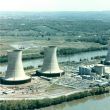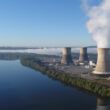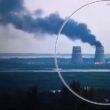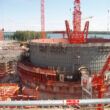No insurmountable hurdles to no-first-use
By Ta Minh Tuan, September 20, 2016
President Obama's deliberations over whether to declare a no-first-use policy for US nuclear weapons have polarized opinion across a spectrum of policy and security specialists. Opponents of the shift argue that a no-first-use policy would frighten US allies (especially South Korea and Japan), indicate weakness (at least in the eyes of Russia, China, and North Korea), and degrade Washington's ability to deter potential adversaries. Proponents argue that no-first-use would contribute to the predictability of Washington's nuclear posture—earning credibility for US efforts to make the world a safer place while not affecting allies' confidence in US extended deterrence. Now, in the aftermath of North Korea's fifth nuclear test—Pyongyang's most powerful test so far—chances seem dim that Obama will institute a no-first-use policy. Still, the possible implications in East and Southeast Asia of a US no-first-use policy are well worth examining.
It bears saying at the outset that the security repercussions of a no-first-use policy would be greater in East Asia than in Southeast Asia. Such a policy's impact in East Asia would entail the perceptions, attitudes, and reactions of Russia, China, and North Korea—three nuclear-armed states—as well as Japan and South Korea—two countries technologically capable of producing nuclear weapons.
Russia and China, the major nuclear powers in the region, would likely welcome a US no-first-use policy. It would serve their interests well (or at least they would have nothing to lose from it). But despite what some have argued, Moscow and Beijing would not interpret a US policy shift as a signal of weakness. They fully understand the damage that the US military is capable of inflicting on enemies without the first use of nuclear weapons. Neither Russia nor China would underestimate US military power just because of a no-first-use policy, and therefore they wouldn't be tempted to behave more assertively or to undermine US interests in East Asia. In short, a US no-first-use policy would result in no additional tensions or security threats among the United States, Russia, and China.
North Korea, on the other hand, could pose a problem. When Pyongyang conducts repeated nuclear tests in defiance of UN Security Council resolutions and international sanctions, it clearly demonstrates that it does not care about its neighbors' security concerns. And if Washington now declares that it will never launch a nuclear first strike, Pyongyang might feel emboldened to press ahead even harder with its own nuclear weapons program. The grave danger in that case would be a snowball effect—that Pyongyang's intensified nuclear ambitions would heighten insecurity among North Korea's neighbors and cause them to take countermeasures, such as depending even more on the United States for protection. This would likely invite additional tensions in these nations' relationships with North Korea, and perhaps with China and Russia, causing them in turn to devote even more resources to their militaries. Unfortunately, Pyongyang regards fear in South Korea and Japan as desirable; fear provides the North more negotiating power. So to the extent that a US no-first-use policy produced insecurity in Seoul and Tokyo, North Korea would be the biggest beneficiary, and could become a major player in East Asian security.
Japan and South Korea would seem to be the East Asian countries most affected by a US no-first-use policy. Their security relies to a large extent on US military protection—including the nuclear umbrella, which provides deterrence first against North Korea and second against China and Russia. But the notion that Tokyo and Seoul have weak militaries is simply incorrect. To the contrary, their militaries are among the best equipped and most advanced forces in Asia. During a conventional armed conflict or war, either Japan or South Korea could deal effectively with any potential enemy in East Asia, and perhaps Japan and South Korea's lack of nuclear weapons is all that prevents them from being considered among the most powerful countries in the world—politically, economically, and, yes, militarily. So Washington's extended nuclear deterrence relieves Japan and South Korea from worry about nuclear threats. They can handle other threats on their own.
Still, with an ambitious and nuclear-armed North Korea next door, Tokyo and Seoul might see a US no-first-use policy as a valid cause for concern. But there would be no legitimate reason for them to develop their own nuclear weapons—as long as US extended deterrence remained in place, no-first-use would do nothing to increase the chances of a North Korean nuclear attack. Rather, Tokyo and Seoul's security concerns would increase if a US no-first-use policy upset the region's nuclear balance and caused the region's nuclear powers to behave antagonistically toward each other. But there's little evidence to suggest that outcome.
Looking south. If Obama institutes a no-first-use policy, the effects in Southeast Asia will be minimal. The region has been established as a nuclear-weapon-free zone since 1995. Countries in the region adhere to the major international nonproliferation treaties. They supported the Nuclear Security Summit process (even if not all of them attended the summits).
In the bilateral relations of Southeast Asian nations with the United States, China, Russia, North Korea, South Korea, and Japan, no serious security issues exist—except perhaps, in China's case, the flashpoint of the South China Sea. None of the six countries has ever announced that it has targeted Southeast Asian nations with nuclear weapons and none of them today constitutes a nuclear threat to Southeast Asia. No Southeast Asian nation receives US extended deterrence—not even the Philippines and Thailand, Washington's major non-NATO allies in the region.
Simply put, a US no-first-use policy would introduce no security problems in the region, and Southeast Asian countries would welcome this policy shift. But Southeast Asian countries would encourage Washington to accede to the Protocol of the Treaty of Bangkok, thereby pledging to honor the Southeast Asian Nuclear-Weapon-Free Zone.
In East and Southeast Asia, the negative security impacts of a US no-first-use policy would be easily outweighed by the security benefits. Obama won't likely institute no-first-use, but here's hoping that he does.
Topics: Nuclear Energy
Share: [addthis tool="addthis_inline_share_toolbox"]














